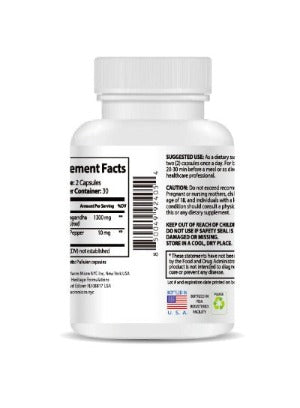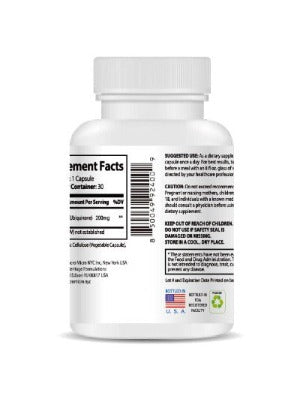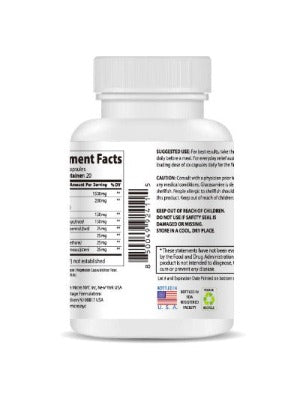How Diet and Lifestyle Can Help Manage Allergic Conjunctivitis
Allergic conjunctivitis, also known as allergic eye disease, is a prevalent condition affecting millions globally. Characterized by itchy, watery, red eyes, often accompanied by swelling and discomfort, it significantly impacts daily life. While medical treatments are crucial, incorporating targeted dietary and lifestyle changes can substantially improve your quality of life and reduce the severity and frequency of allergic conjunctivitis episodes. This article delves into the intricate connection between diet, lifestyle, and allergic conjunctivitis management, offering practical strategies for long-term relief. We will also explore the role of supportive eye care products in alleviating symptoms.
Understanding the Mechanisms of Allergic Conjunctivitis
Allergic conjunctivitis is an inflammatory response triggered by allergens that come into contact with the eyes. These allergens can include pollen (a major culprit during spring and fall), dust mites (found in bedding, carpets, and upholstery), pet dander, mold spores, and certain cosmetics or eye products. When these allergens interact with the conjunctiva (the membrane covering the white part of the eye and the inner surface of the eyelids), the immune system reacts, releasing histamine and other inflammatory chemicals. This leads to the cascade of symptoms associated with allergic conjunctivitis: itching, redness, swelling, tearing, and sometimes even light sensitivity (photophobia).
The Role of Nutrition in Allergic Conjunctivitis Management
Nutrition plays a pivotal role in managing allergic conjunctivitis. The foods we consume directly impact inflammation levels throughout the body, including the eyes. A well-balanced diet rich in anti-inflammatory foods is key to reducing the intensity and frequency of allergic reactions. This involves incorporating a variety of nutrient-dense foods:
- Fruits and Vegetables: Rich in antioxidants and vitamins, these combat oxidative stress and reduce inflammation. Aim for a colorful array of fruits and vegetables to maximize the benefits.
- Omega-3 Fatty Acids: Found in fatty fish (salmon, mackerel, tuna), flaxseeds, and chia seeds, omega-3s have potent anti-inflammatory properties. They help regulate the immune system and reduce the production of inflammatory chemicals.
- Probiotics: These beneficial bacteria support gut health, which is increasingly linked to immune function. A healthy gut microbiome can help modulate the immune response and potentially reduce allergic reactions.
- Vitamins and Minerals: Vitamins like vitamin C and E, along with minerals like zinc and selenium, are potent antioxidants that support immune health and combat inflammation.
- Foods to Limit or Avoid: Certain foods can exacerbate allergic reactions in susceptible individuals. These may include processed foods, refined sugars, and foods high in saturated and trans fats. It's advisable to identify and eliminate any personal triggers through a food diary and potential consultation with an allergist or nutritionist.
Lifestyle Changes for Enhanced Allergic Conjunctivitis Management
In conjunction with a healthy diet, adopting certain lifestyle modifications can significantly improve your management of allergic conjunctivitis:
- Environmental Control: Minimize exposure to allergens. Regularly clean your home, using HEPA filters for air purification. Wash bedding frequently in hot water, and consider using allergen-proof covers for mattresses and pillows. If you have pets, keep them out of your bedroom and maintain regular grooming routines.
- Eye Hygiene: Avoid rubbing your eyes, as this can worsen irritation and inflammation. Gently wash your eyelids with a clean, damp cloth to remove allergens and debris. Consider using artificial tears to lubricate your eyes and relieve dryness.
- Outdoor Precautions: During peak pollen seasons, stay indoors as much as possible, especially during the early morning and late afternoon when pollen counts are highest. If you must go outside, wear sunglasses to protect your eyes from allergens, and wash your face and hair after returning indoors.
- Stress Management: Stress can worsen allergic reactions. Practice stress-reduction techniques, such as yoga, meditation, deep breathing exercises, or spending time in nature. Adequate sleep is also essential for immune function.
- Hydration: Drinking plenty of water helps to keep your eyes lubricated and prevents dryness, which can exacerbate allergic symptoms.
The Role of Eye Care Products
Incorporating soothing eye care products can provide additional relief and comfort. For example, Wise Quest Soothing Eye Patches offer a gentle and effective way to soothe irritated eyes. These patches, harnessing the power of traditional Chinese herbal medicine, fundamentally relieve eye fatigue, eye dryness, eye astringency, eye redness, and swelling caused by long hours in front of screens. They promote healthy blood circulation, helping to relieve most eye discomfort and disease. Using these patches can complement your dietary and lifestyle changes, providing additional comfort and support for your eyes.

The gentle application and soothing properties of the Wise Quest Soothing Eye Patches can help reduce inflammation and promote relaxation, offering a welcome respite from the discomfort of allergic conjunctivitis. Remember, these patches are a supportive tool and should be used in conjunction with the other recommendations outlined above for holistic management.
Conclusion: A Holistic Approach to Allergic Conjunctivitis
Effective management of allergic conjunctivitis necessitates a comprehensive, holistic approach. By combining targeted dietary changes, mindful lifestyle modifications, and the judicious use of supportive eye care products such as Wise Quest Soothing Eye Patches, individuals can significantly improve their quality of life and reduce the impact of this common condition. Regular consultation with your doctor or ophthalmologist is crucial for personalized guidance and to address any underlying concerns.









